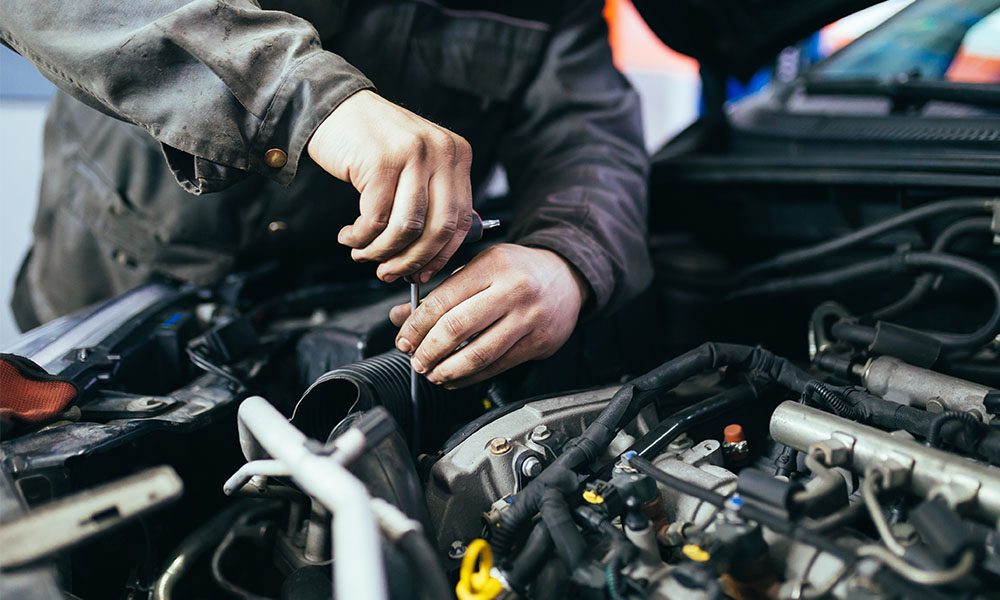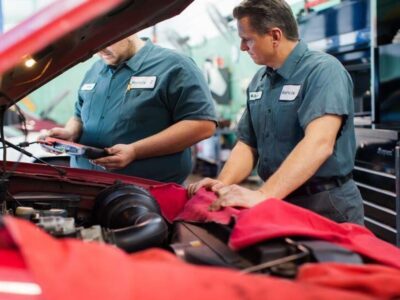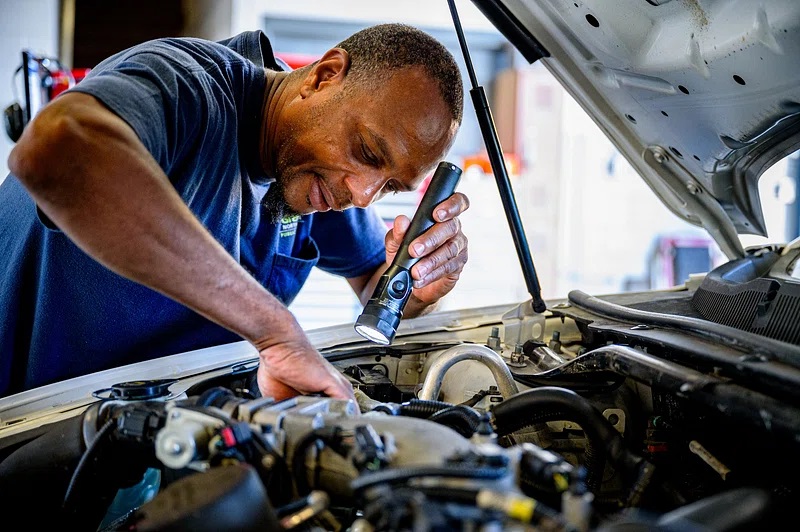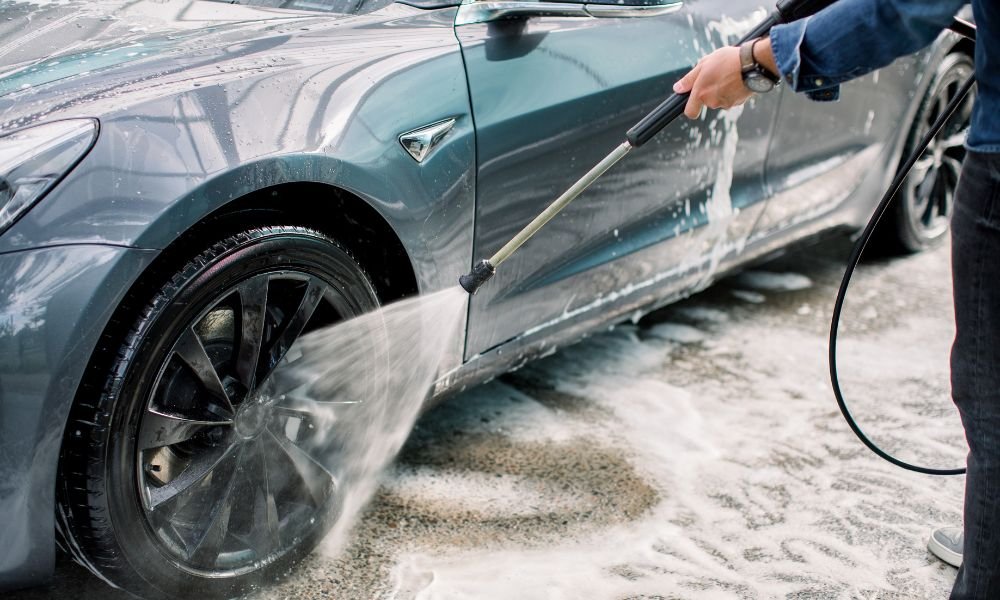We’ve all been there – that faint squeak when you brake, the check engine light that flickers then disappears, or that slightly odd smell after a long drive. It’s easy to dismiss these minor annoyances, especially when life in Waterloo gets busy. But here’s the hard truth: ignoring seemingly minor car issues is a common mistake that can lead to significantly more expensive repairs, safety hazards, and major inconvenience down the road. Your car is a complex system of interconnected parts, and a problem in one area can quickly cascade, affecting others like a domino effect.
The “Snowball Effect” – How Small Issues Escalate
Think of it like a tiny crack in your windshield. At first, it’s barely noticeable. But with every bump in the road, every change in temperature, that small crack expands, eventually compromising the entire windshield. Your car operates similarly. A small, isolated problem rarely stays small and isolated. Instead, it often puts undue strain on other components, accelerating their wear and tear and turning a minor fix into a major overhaul.
Common “Small” Issues and Their Potential Escalation
Let’s look at some common “small” issues and how they can rapidly spiral out of control:
A. The “Check Engine” Light (or other warning lights)
This is perhaps the most famous warning light, and for good reason. While it can signify anything from a loose gas cap to a failing catalytic converter, ignoring it is like ignoring a smoke alarm. It won’t tell you what the fire is, but it’s screaming for attention. If you ignore it, you could be overlooking something simple like a faulty oxygen sensor, which, if left unaddressed, can lead to decreased fuel economy and eventually, costly damage to your catalytic converter.
B. Unusual Noises (Squeaks, Grinding, Clunks, Hums)
Is your car squealing like a banshee when you brake on King Street? Are you hearing a persistent hum as you drive down University Avenue? Don’t just turn up the radio!
- Brake squealoften means worn brake pads, which, if ignored, can lead to metal-on-metal grinding, damaging rotors and calipers, and ultimately, brake failure.
- Suspension creakscould indicate worn bushings or ball joints. Leave these too long, and you might face unstable handling, premature tire wear, and even a dangerous loss of control.
- Engine tappingcould be a sign of low oil pressure, potentially leading to catastrophic engine damage.
C. Fluid Leaks (Oil, Coolant, Brake Fluid, Transmission Fluid)
Seeing a puddle under your car in your Waterloo driveway? Don’t just dismiss it as condensation.
- An oil leakcan lead to insufficient lubrication, causing engine components to wear out rapidly or even seize.
- A coolant leakmeans your engine isn’t being properly cooled, risking severe overheating and blown head gaskets.
- Brake fluid leaksare a serious safety concern, leading directly to reduced braking performance or complete brake failure.
- Transmission fluid leakscan result in rough shifting or even total transmission failure – an incredibly expensive repair.
D. Vibrations or Shaking
Do you feel a tremor in the steering wheel, or does your whole car shake when you’re cruising on Highway 85? These vibrations can be subtle at first but can escalate.
- Unbalanced tiresare a common culprit, and if not addressed, can lead to premature wear on tires, suspension components, and wheel bearings.
- More serious vibrations could indicate worn suspension parts, a bent rim, or a failing universal joint, all of which can compromise vehicle control and safety.
E. Odd Smells
Nasty smells aren’t just unpleasant; they’re often urgent warnings.
- A burning oilsmell could point to a leak dripping onto hot engine parts, which is a fire hazard.
- A sweet, syrupy smellusually indicates a coolant leak, risking engine overheating.
- The smell of burning rubbercould be a slipping belt or a component rubbing where it shouldn’t, potentially leading to a breakdown.
F. Decreased Performance (Poor Fuel Economy, Sluggish Acceleration)
If your car suddenly feels sluggish, or you’re filling up more often than usual at the gas station near your home in Waterloo, these are signs that something isn’t right. While not immediately catastrophic, these often indicate underlying engine or transmission issues that will only worsen over time, leading to significant repair bills down the line.
The Hidden Costs of Procrastination
Ignoring these seemingly small issues doesn’t just mean a bigger repair bill; it has far-reaching consequences:
Financial:
That $100 brake pad replacement can quickly become a $1000 brake system overhaul. A simple exhaust leak, if left too long, could mean replacing your entire exhaust system, including a new catalytic converter and a trip to a specialized muffler shop in Waterloo.
Time & Convenience:
A minor issue diagnosed and fixed quickly means minimal disruption. A major breakdown on the way to work or picking up the kids from school, however, means unexpected towing expenses, the hassle of finding alternative transportation, and a significant loss of time.
Safety:
This is perhaps the most critical concern. A compromised brake system, faulty steering, or an engine that dies unexpectedly can put you and your loved ones in harm’s way, increasing the risk of accidents.
What to Do When You Notice a Small Issue
The good news is that preventing these major headaches is often simple!
A. Don’t Panic, But Don’t Ignore
When you notice something amiss, don’t just hope it goes away. Acknowledge it, and plan to address it promptly.
B. Consult Your Owner’s Manual
For warning lights, your owner’s manual is an excellent first resource. It often provides initial troubleshooting tips and explains what the light means.
C. Schedule a Diagnostic Check
As soon as you notice an issue, especially a persistent one, schedule a diagnostic check with a trusted mechanic in Waterloo. They have the tools and expertise to accurately pinpoint the problem before it escalates.
D. Be Proactive with Maintenance
Regular maintenance, as outlined in your car’s service schedule, is your best defense against small issues turning into big ones. Fluid checks, tire rotations, and timely inspections can catch problems early.
E. Keep Records
Maintain a log of your car’s maintenance and any issues you’ve noticed. This helps your mechanic understand the history of your vehicle and can aid in quicker diagnosis.
Your car is an investment and a vital part of your daily life in Waterloo. It’s constantly communicating with you, and those strange noises, smells, or warning lights are its way of asking for help. Listen to it! By being vigilant, proactive, and seeking professional help when needed, you’re not just saving money; you’re ensuring your safety, maximizing your vehicle’s lifespan, and enjoying the peace of mind that comes with a reliable ride. Don’t let a small car issue snowball into a mountain of problems. Address it, and drive on with confidence!












Comments